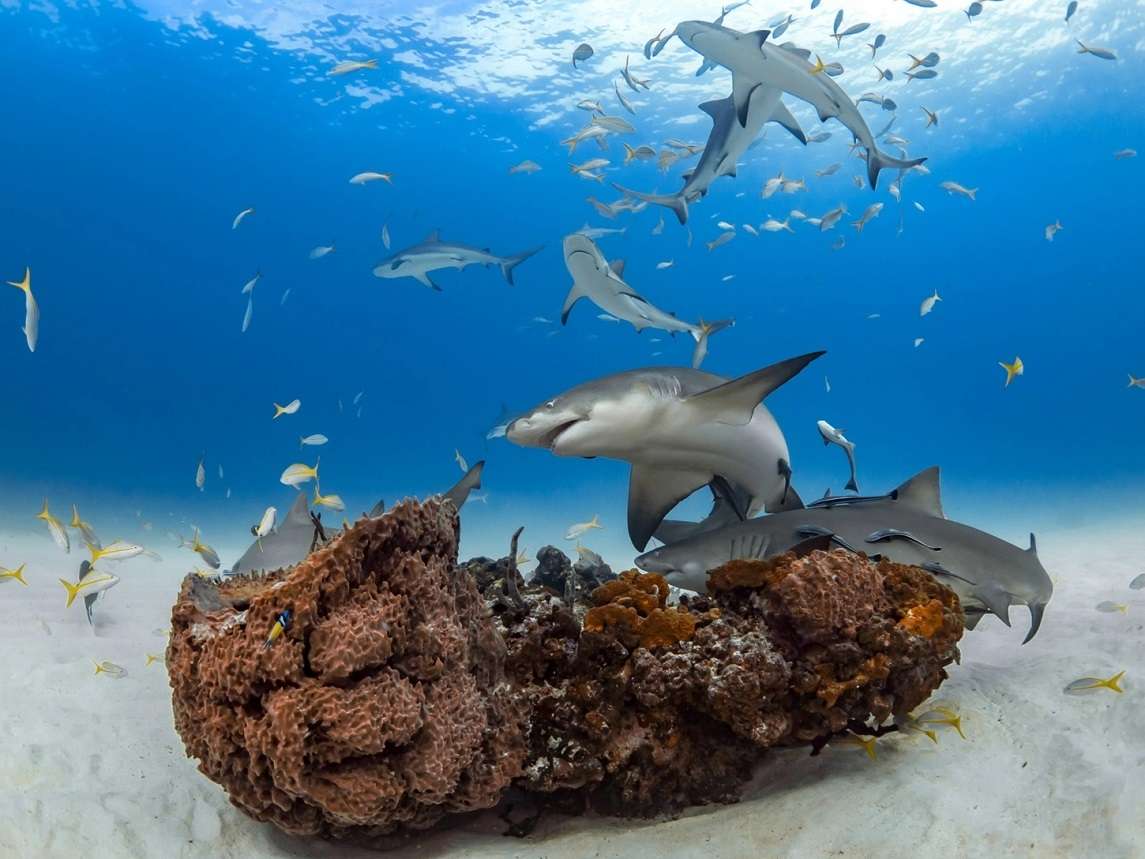Nearly two-thirds of the shark and ray species in the Coral reefs around the world are in danger of extinction, according to a published study in Nature Communications.
The conclusions highlight the need to adopt immediate conservation measures for these species, through local protections and the management and application of fishing regulations and marine protected areas, according to the authors.
#ReefSharkRayStatus published in @NatureComms finds that #overfishing has led to almost TWO-THIRDS of #CoralReef sharks and rays are threatened with extinction:https://t.co/PObOZ5TOG2#GlobalSharkTrends #SharkScience pic.twitter.com/JtnbmLPkl9
— Dr. Samantha Sherman (@SammSherman27) January 17, 2023
Coral reefs are one of the ecosystems most threatened by global climate change and sharks and rays, crucial for the functioning of these ecosystems, cover a series of ecological niches, from filter feeders to predators, according to a report from efe.
However, many populations of a few species are known to show signs of depletion and local extinctions; the question is whether these declines herald a global extinction crisis.
To find out, the international team led by Samantha Sherman, from Simon Fraser University (Canada), used the International Union for Conservation of Nature (IUCN) Red List of Threatened Species and assessed the extinction risk of all 134 species. of sharks and rays associated with coral reefs.
They also compared their situation with that of all other coral reef species.
Thus, the researchers found that 59% of coral reef shark and ray species are in danger of extinction, such as the white-finned shark and the reticulated stingray, which makes them the most threatened group in the world, apart from of marine mammals.
Overfishing is the main cause of the elevated risk of extinction, exacerbated by climate change and habitat degradation.
According to the analysis, the risk of extinction was greatest for large, widely distributed species, such as the bull shark and reef manta ray, both present in the waters of more than 60 countries.
The risk of extinction was also higher in countries with higher fishing pressure and poorer governance, such as Brazil, Tanzania and Indonesia, according to the authors.
Populations have been declining for more than half a century, with the largest declines before 2005.
Most of the species, threatened or not, show a decreasing population trend; only 10.4% are stable. Only one species (the ‘Taeniura lymma’ skate) is increasing worldwide, according to estimates.
The results suggest that, if steps are not taken to improve the conservation of sharks and rays on coral reefs, the decline could have serious consequences for the health of these ecosystems and for the hundreds of millions of people in coastal communities that depend on them. from them.
With information from Efe.

















